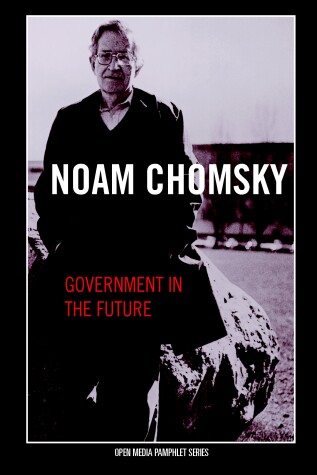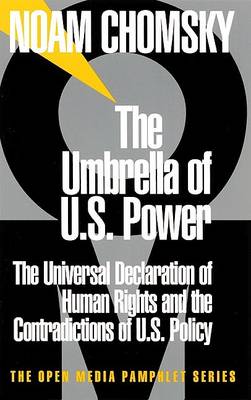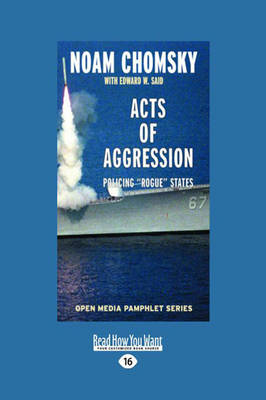Open Media Pamphlet
3 total works
In this classic talk delivered at the Poetry Center, New York, on February 16, 1970, Noam Chomsky articulates a clear, uncompromising vision of social change. Chomsky contrasts the classical liberal, libertarian socialist, state socialist, and state capitalist world views and then defends a libertarian socialist vision as "the proper and natural extension . . . of classical liberalism into the era of advanced industrial society."
In his stirring conclusion Chomsky argues, "We have today the technical and material resources to meet man’s animal needs.We have not developed the cultural and moral resources or the democratic forms of social organization that make possible the humane and rational use of our material wealth and power.
Conceivably, the classical liberal ideals as expressed and developed in their libertarian socialist form are achievable. But if so, only by a popular revolutionary movement, rooted in wide strata of the population and committed to the elimination of repressive and authoritarian institutions, state and private. To create such a movement is a challenge we face and must meet if there is to be an escape from contemporary barbarism."
In his stirring conclusion Chomsky argues, "We have today the technical and material resources to meet man’s animal needs.We have not developed the cultural and moral resources or the democratic forms of social organization that make possible the humane and rational use of our material wealth and power.
Conceivably, the classical liberal ideals as expressed and developed in their libertarian socialist form are achievable. But if so, only by a popular revolutionary movement, rooted in wide strata of the population and committed to the elimination of repressive and authoritarian institutions, state and private. To create such a movement is a challenge we face and must meet if there is to be an escape from contemporary barbarism."
Chomsky observes the 50th anniversary of the Universal Declaration of Human Rights as a "Path to a Better World," while chronicling how far off the trail the United States is with respect to actual political practice and conduct. Analysing the contradictions of U.S. power while illustrating the real progress won by sustained popular struggle, Chomsky cuts through official political rhetoric to examine how the United States not only violates the UD, but at times uses it as a weapon to wield against designated enemies.
InActs of Aggressionthree distinguished activist scholars examine the background and ramifications of the U.S. conflict with Iraq. Through three separate essays, the pamphlet provides an in-depth analysis of U.S./Arab relations, the contradictions and consequences of U.S. foreign policy toward"rogue states," and how hostile American actions abroa...


